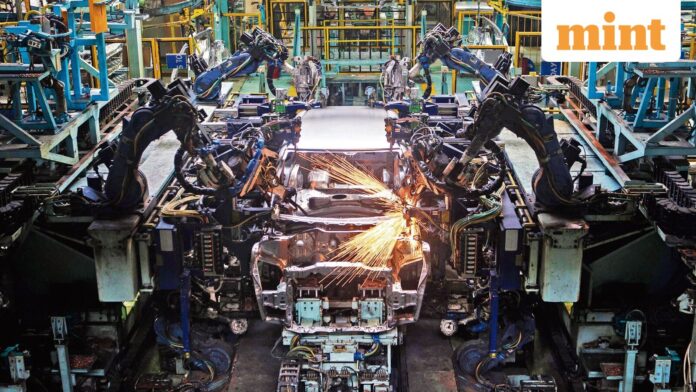New Delhi: India wants clean cars, but how much leeway they should get in upcoming emission norms is now the subject of a sharp split.
While global clean-transport bodies—Geneva-based International Road Federation (IRF) and the US-based International Council on Clean Transportation (ICCT)—have warned that generous “super credits” weaken India’s emissions framework, the Indian auto industry lobby has urged the government to increase them.
Super credits—which allow one electric vehicle (EV) to be counted as three vehicles and one strong hybrid as two in calculating a company’s corporate average fuel efficiency (Cafe-III) emissions—were introduced to help carmakers meet targets by gradually adding cleaner vehicles.
In its final submission to the government earlier this month, the Society for Indian Automobile Manufacturers or Siam—which counts all major carmakers as its members—has asked the government to increase the super-credit value for EVs to four vehicles from three in the final rules, and stay with two vehicles for hybrids, according to two executives familiar with the discussions.
But IRF and ICCT have argued that super credits can artificially lower a carmaker’s average emissions, allowing companies to sell more high-emitting petrol and diesel models while meeting targets through multipliers. They also say the system places India out of step with global norms.
“I am surprised and concerned to learn that automakers are now unitedly lobbying to increase this volume derogation factor from 3 to 4,” IRF president (emeritus) K.K. Kapila wrote in the letter dated 3 November. “Furthermore, they are demanding that EVs be treated as consuming “zero energy”, which is impractical and against the basic laws of physics.”
“This proposal moves India in the opposite direction of global tightening. Major markets like the US, EU, and Japan have recognized that high volume derogations distort the true emissions picture and are insisting on actual CO₂ reduction,” Kapila said in his letter. Mint has seen a copy of the letter.
In an earlier recommendation submitted on 10 October, ICCT had said that the regulator should start thinking about phasing out super credits for hybrid vehicles and phasing them down for EVs. It added that the current recommendation “significantly reduces compliance burden for automakers, making it easier to sell high-emitting ICE vehicles”. Mint has seen a copy of the recommendation.
ICCT further said cutting back super credits would push carmakers to improve the fuel efficiency of their ICE (internal combustion engine) fleet and speed up genuine EV adoption by making zero-emission vehicles the main way for companies to meet targets.
Concerns around super credits were first raised by former Niti Aayog chief Amitabh Kant in a September 2024 letter to Tarun Kapoor, advisor to the Prime Minister Office—draft Cafe-III norms were first released by the Bureau of Energy Efficiency (BEE) in June 2024. Mint has reviewed a copy of the letter.
“BEE must initiate action to remove super credits for various technologies from the proposed Cafe norms, as these currently allow automobile manufacturers to meet efficiency targets without producing adequate clean vehicles,” Kant had said in the letter.
Queries sent to Siam, Amitabh Kant, Tarun Kapoor, and carmakers like Tata Motors, Mahindra & Mahindra and Maruti Suzuki remained unanswered till press time. IRF did not respond to requests for additional comment, and ICCT declined to comment on an internal document.
In his letter, IRF’s Kapila noted that the super credit multiple of three already allows 15–18 gm of benefit in the final calculation for one EV. If the super credit multiple is increased to four, then the benefit increases to 30-40 gm.
As part of Cafe-III norms, whose latest draft was released in September 2025, companies have to adhere to a maximum emission cap of 88.4 CO2g/km in 2027 for their portfolio, which will be scaled down to 71.5 CO2/g by 2032. To simplify meeting these norms, the BEE included super credits, which allow some leniency for carmakers in meeting the norms.
cafe iii norms india,super credits evs hybrids,siam request super credit increase,irf icct cafe norms warning,corporate average fuel efficiency india,ev super credit multiplier,ice vehicle emissions relaxation,indian auto industry lobby,co2 emission cap 2027 india,strong hybrid super credits,ev adoption speed india,amitabh kant cafe norms letter,zero emission vehicles compliance,carmakers emissions framework split,bureau of energy efficiency cafe,clean transport bodies india,cafe iii co2g/km target,ev vs hybrid emissions debate,auto sector decarbonization india,automobile manufacturers lobbying
#Automakers #seek #leeway #clean #cars #watchdogs #call #foul

